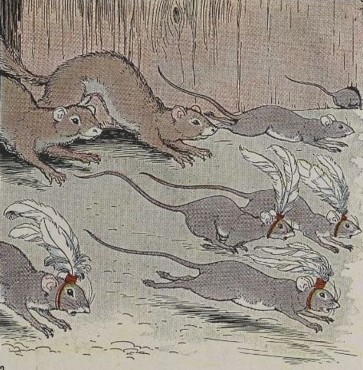PART A_1
Let’s learn vocabulary. Listen and repeat the words and the sentences with your tutor.
PART A_2
| 1. despair | /dih-SPAIR/ |
| -the feeling that there is no hope and that you can do nothing to improve a difficult or worrying situation | |
| Her parents were left in despair after the accident. | |
| 2. eminent | /EM-uh-nuhnt/ |
| -famous, respected, or important | |
| The eminent statesman delivered his speech. | |
| 3. council | /KOUN-suhl/ |
| -a group of people elected or chosen to make decisions or give advice on a particular subject | |
| He went to the council to seek advice for his case. | |
| 4. eager | /EE-ger/ |
| -wanting very much to do or have something, especially something interesting or enjoyable | |
| The students are eager to learn the history of the country. | |
| 5. ornament | /AWR-nuh-muhnt/ |
| -an object that is beautiful rather than useful | |
| She bought glass ornaments for the event next week. |
PART B_1
Let’s read the story. Please read them aloud, and I will check your pronunciation and intonation.
PART B_2
The Mice and the Weasles

The Weasels and the Mice were always up in arms against each other. In every battle the Weasels carried off the victory, as well as a large number of the Mice, which they ate for dinner next day. In despair the Mice called a council, and there it was decided that the Mouse army was always beaten because it had no leaders. So a large number of generals and commanders were appointed from among the most eminent Mice.
To distinguish themselves from the soldiers in the ranks, the new leaders proudly bound on their heads lofty crests and ornaments of feathers or straw. Then after long preparation of the Mouse army in all the arts of war, they sent a challenge to the Weasels.
The Weasels accepted the challenge with eagerness, for they were always ready for a fight when a meal was in sight. They immediately attacked the Mouse army in large numbers. Soon the Mouse line gave way before the attack and the whole army fled for cover. The privates easily slipped into their holes, but the Mouse leaders could not squeeze through the narrow openings because of their head-dresses. Not one escaped the teeth of the hungry Weasels.
To distinguish themselves from the soldiers in the ranks, the new leaders proudly bound on their heads lofty crests and ornaments of feathers or straw. Then after long preparation of the Mouse army in all the arts of war, they sent a challenge to the Weasels.
The Weasels accepted the challenge with eagerness, for they were always ready for a fight when a meal was in sight. They immediately attacked the Mouse army in large numbers. Soon the Mouse line gave way before the attack and the whole army fled for cover. The privates easily slipped into their holes, but the Mouse leaders could not squeeze through the narrow openings because of their head-dresses. Not one escaped the teeth of the hungry Weasels.
Greatness has its penalties.
PART C_1
Let’s answer comprehension questions. Please answer them based on the story.
PART C_2
| 1. | What was discussed in the council? |
| 2. | How were the soldiers distinguished based on their ranks? |
| 3. | What happened after the Weasels accepted the challenge? |
PART D_1
Let’s discuss the story. Please answer the questions below and express your opinions.
PART D_2
| 1. | If you were the leader of the Mice, what would you do to win the battle? |
| 2. | What characteristic/s of the Weasels do you not like? Why? |
| 3. | How important is it for us to have great leaders? |
| 4. | What characteristics must good leaders possess? |
| 5. | Cite and explain a situation similar to the fable’s lesson. |
REVIEW AND FEEDBACK
Now, let us review the things that you learned in this lesson.
ではこのレッスンで学んだことを振り返りましょう。
(Please give a short feedback on how your student did on your class.)
| Grammar 文法 |
Pronunciation 発音 | Vocabulary 単語 |
Comprehension 理解 |
|
|---|---|---|---|---|
 GOOD GOOD |
文法の誤りはほとんどなく、完全な文章で話すことができる | ほとんどの単語をはっきりと正しく発音することができる | 習った表現を適切に使うことができる | 文章を理解し、質問に正しく答えることができる |
 FAIR |
文法の誤りはあるが、完全な文章で話すことができる | 発音の練習が必要な言葉がいくつかある | たまにミスはあるが、習った表現を適切に使うことができる | 文章を完全に理解するのは難しく、質問に正しく答えられないときもある |
 POOR |
文章で話すのは難しく、単語だけで話すことができる | 発音の練習が必要である | 習った単語と表現を少しだけ使うことができる | 文章を理解するのは難しく、質問に答えるのは難しい |
Parts of this lesson material are based on:
An eBook from The Project Gutenberg.
This eBook is for the use of anyone anywhere at no cost and with almost no restrictions whatsoever. You may copy it, give it away or re-use it under the terms of the Project Gutenberg License included with this eBook or online at www.gutenberg.org
An eBook from The Project Gutenberg.
This eBook is for the use of anyone anywhere at no cost and with almost no restrictions whatsoever. You may copy it, give it away or re-use it under the terms of the Project Gutenberg License included with this eBook or online at www.gutenberg.org